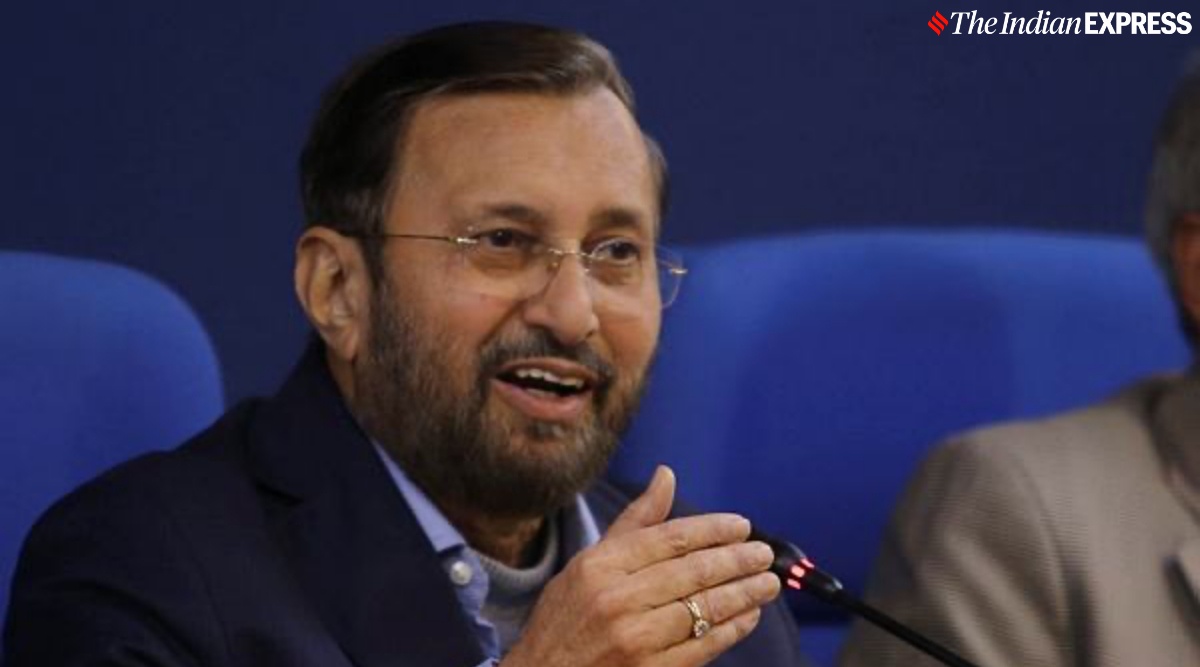
[ad_1]
 Union Minister Prakash Javadekar addressing a press conference (File photo)
Union Minister Prakash Javadekar addressing a press conference (File photo)
The Union Cabinet has approved the proposal for leasing out Jaipur, Guwahati and Thiruvanathapuram airports of the Airports Authority of India (AAI) through Public-Private Partnership, Union Minister Prakash Javadekar announced on Wednesday.
The latest announcement comes a year after the Cabinet had similarly cleared the civil aviation ministry’s proposal to lease out Ahmedabad, Lucknow and Mangaluru airports through PPP to the Adani group for a period of 50 years. It was the second big airport privatisation round after Delhi and Mumbai were given to private companies GMR and GVK, respectively.
In February last year, the Adani group was selected to operate the three airports, in addition to Jaipur, Guwahati and Thiruvananthapuram, after having bid aggressively.

As per the lease terms of the PPP agreement, Adani group is responsible for operations and management of the existing airport assets as well as for designing, engineering, financing, construction and development of the additional air-side, terminal, city-side and land-side infrastructure for the airport.
The government had invited bids from private players to operate these airports for 50 years on a PPP basis. The AAI adopted the per-passenger fee model this time, which is a modification of the revenue-sharing model that was used earlier in the privatisation of airports such as Delhi, Mumbai, Bangalore and Hyderabad.
Under the per-passenger fee model, the airport operator needs to pay fixed charges per passenger on a monthly basis to AAI. For instance, if 1 lakh passengers use a particular airport in a year, the operator pays the charge multiplied by the number of passengers for the entire year to AAI. Charges are paid on a monthly basis. This provides an incentive for the airport operator to grow revenue as there is no sharing while AAI benefits from the growth in passengers.
Among other major decisions, the Cabinet gave its nod to set up a National Recruitment Agency (NRA) for conducting a Common Eligibility Test (CET) for central government jobs.
Explaining the rationale behind the decision, Secretary C Chandramouli said that the government recruitment exams used to have different schedules, application processes and fees, leading to malpractices due to infrastructural challenges. The decision to set up the National Recruitment Agency has been taken to eliminate these challenges, he said.
He further said that around 2.5 to 3 crore people appear for over 1.25 lakh central government vacancies in Group B and C every year through IBPS, SSC, and RRB.
Terming the move as a “landmark reform”, Union minister Jitendra Singh said it will lead to ease of selection, ease of job placement and ease of living, especially for those sections of society that are considered disadvantaged. It will also help the poor and women who have to travel long distances for taking exams for various jobs, he said.
The NRA will conduct a CET to screen/shortlist candidates for the Group B and Group C (non-technical) posts. The NRA will have representatives from the Ministry of Railways, the Ministry of Finance/Department of Financial Services, the Staff Selection Commission (SSC), the Railway Recruitment Board (RRB) and the Institute of Banking Personnel Selection (IBPS).
For now, the scores of the common test will be used by three major recruitment agencies, but other agencies would be included over a period of time. In the long run, the CET score could be shared with other recruiting agencies in the Central government, state governments/Union Territories, Public Sector Undertakings and Private Sector, Singh said. This, he said, would help them save costs and time spent on recruitment.
At present, candidates seeking government jobs have to appear for separate examinations conducted by multiple recruiting agencies for various posts even though they have similar eligibility conditions. The candidates thus end up paying fee to multiple recruiting agencies and also have to travel long distances for appearing in these exams. Singh said the initial plan is to set up 1,000 exam centres across the country for conduction this common test. There will be at least one exam centre in each district and no candidate will now have to travel out of their district for taking this common exam, he said.
The Cabinet also approved the fair and remunerative price of sugarcane, stating that the move will give relief to 1 crore cane farmers.
Besides, it approved a proposal to relax working capital limit norm for discoms under the Ujwal DISCOM Assurance Yojana (UDAY) to get loans as part of the Rs 90,000 crore liquidity infusion scheme.
After the Cabinet meeting, Javadekar said, “Power sector has a problem. There is a slump in power consumption. The bills are not being collected by them. PFC and REC have been allowed to give loans above the limit more the 25 per cent working capital limit. This will increase liquidity of the state discoms”.
“The working capital limit is 25 per cent of last year’s revenue. Now the limit is relaxed,” he further said.
Finance Minister Nirmala Sitharaman had in May announced the Rs 90,000 crore liquidity infusion into cash-strapped discoms, facing demand slump due to the lockdown to contain COVID-19.
📣 The Indian Express is now on Telegram. Click here to join our channel (@indianexpress) and stay updated with the latest headlines
For all the latest India News, download Indian Express App.
© IE Online Media Services Pvt Ltd
[ad_2]
Source link